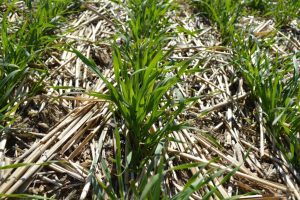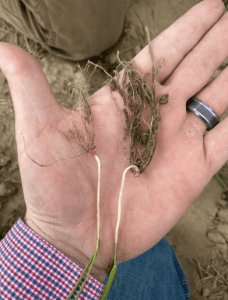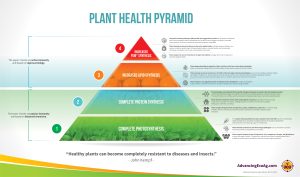Source: This post was originally published on AgFunder News

Concerns around the price of inputs and extreme weather events could increase adoption of sustainability practices among farmers globally, according to a global survey of farmers from McKinsey.
The Global Farmer Insights 2024 report found that these concerns among others are causing a desire to improve productivity specifically through agtech, biological inputs, and “sustainable” practices such as crop rotation and no-till farming.
Desire for more efficiency and productivity is nothing new among farmers, though the reasoning behind the motivation has begun to shift. While input prices and extreme weather were also the top motivators in McKinsey’s 2022 Global Farmer Insights survey, the gap between them “has closed considerably, given that farmers have experienced a greater number of extreme weather events.”
In Europe and Latin America, extreme weather events have actually overtaken input prices as the top concern.
With these factors causing worry around yield and production efficiency, farmers are increasingly looking beyond “business as usual” farming scenarios and towards the benefits — and potential revenue streams — to be gained from ag technologies.
McKinsey’s report surveyed 4,400 farmers in Europe, India, Latin America, and North America. Among the areas examined in the report, ag biologicals and carbon farming stand out as two extremes on the agtech adoption spectrum.
Biologicals adoption suggests ‘a resilient market’
Currently, 31% use bionutrients, a category of natural soil-enhancing products that include biofertilizers and biostimulants. The top reasons for adopting these products are to improve yield and soil health.
Another 20% use biocontrols, including microorganisms and biochemicals that help control pests, weeds and other stressors.
As the report notes, “Farmers adopt biocontrols primarily as a means of achieving a lower overall pest management cost per acre and better efficacy compared with only applying the traditional crop protection protocols.”
Brazil has the highest rate of adoption for bionutrients and biocontrols, reflecting the country’s overall lead in the sector thanks to widespread government support and a regulatory framework that enables speedy deployment of products to the field.
Around 64% of Brazilian farmers use bionutrients, driven by this government support as well as the high cost of fertilizers. Biocontrols enjoy a 61% adoption rate in Brazil.
Worldwide, roughly 90% of farmers surveyed expect to maintain or increase spending on bio-based products in the future; 63% will maintain or increase spending “regardless of changes in crop protection and fertilizer prices.”
This, says McKinsey, suggests “a resilient market.”
Importantly, farmers are not looking to replace chemical crop protection products with bio-based counterparts, reflecting the “systems approach” often discussed in conversations around biologicals.
“Interviews with farmers found that they use biologicals to supplement existing fertilizer and crop protection protocols rather than replace them because the combined protocols improve yield,” notes the report.
Carbon programs: a lack of clear incentives and awareness
Meanwhile, adoption of carbon programs remains low. Just 12% of farmers have participated in one, though this is an increase from the 2022 report, where just 5% reported participating. In 2024, 54% have heard of them but are not participating.
“Low adoption of carbon programs is likely due to lack of clear incentives and awareness,” according to the report.
Low ROI is frequently cited as a main reason for this low adoption. Simply put most farmers don’t think it’s high enough to justify the work it takes to participate. McKinsey notes that on average, farmers expect economic incentives of about $35/acre. Factoring in the costs associated with carbon farming, the going rate per acre for many farms is still well below that.
For some regions, a lack of knowledge about carbon programs bars the way to greater adoption. Many farmers surveyed in India and Mexico — 90% and 60% respectively — had never even heard about them.
While McKinsey’s report doesn’t delve too deeply into possible solutions for this, it does recommend “emphasizing ROI-focused solutions,” which might include carbon farming.
According to the report, growers report “a persistent gap” in understanding the ROI of new products and solutions.
“There continues to be an opportunity for providers and resellers of inputs, digital solutions, advisory services, and hardware to demonstrate the ROI in a clearer way that would make them easier for farmers to adopt.”


















